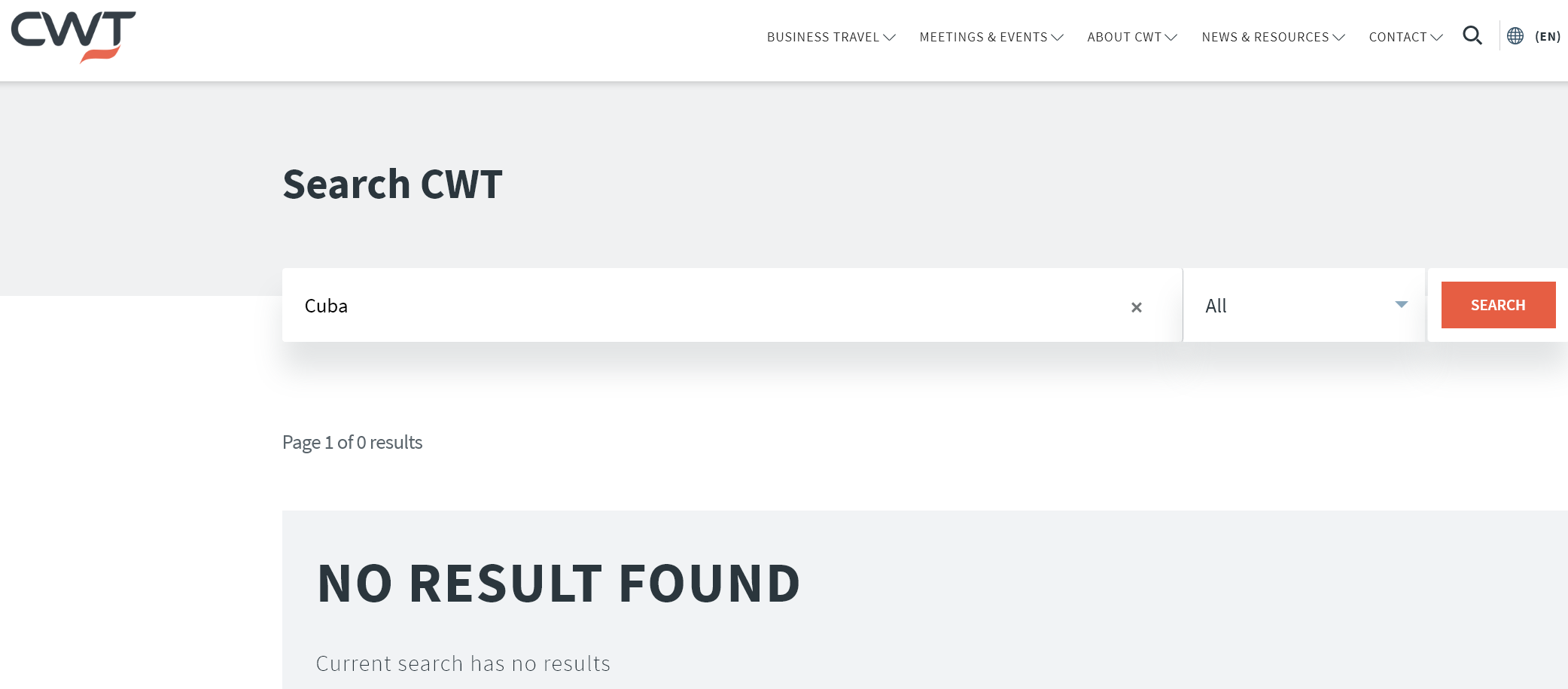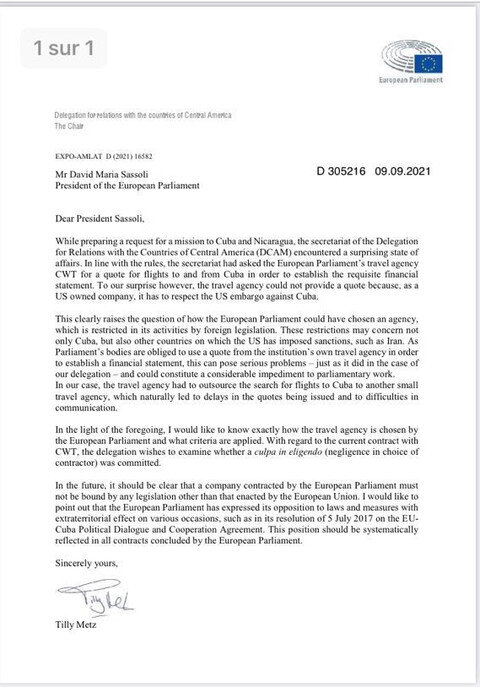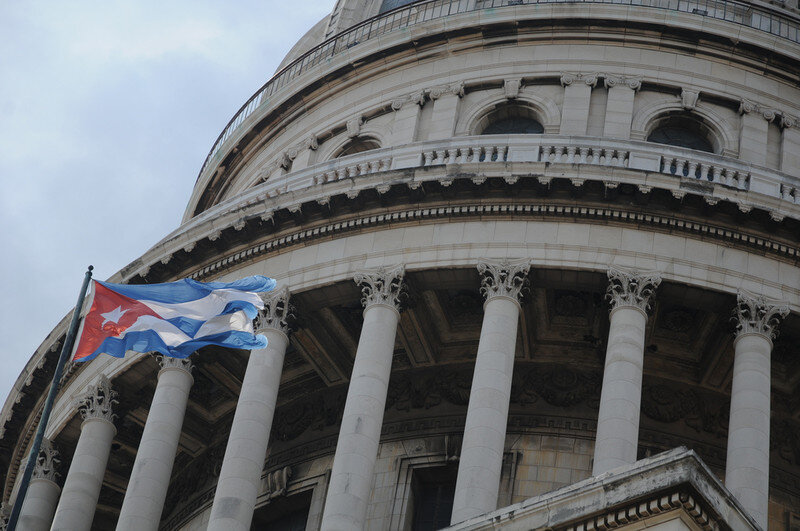Another Liebherr Of Switzerland Crane On Way To Cuba; Addition To Rental Fleet For Womy Equipment Of The Netherlands. More Competition For Caterpillar & Deere
/From LinkedIn Post: “Behind the scenes, the Womy team has been busy acquiring new equipment for our rental fleet in Cuba! One of these editions is the Liebherr LRT 1090-2.1. Our brand new crane is already on its way to Cuba! Many thanks to Liebherr_nederland B.V. and Martijn Esveldt for always assisting us! #Liebherr #Womy” LINK To Womy Office In ZED Mariel In Cuba
Womy Equipment (Rental and Supply) is part of [Hoogvliet, The Netherlands-based] Mobilift International [subsidiary of Hoogvliet, The Netherlands-based Peinemann Mobilift Groep B.V.; 2019 revenue approximately US$220 million; office in Spring, Texas].
Bulle, Switzerland-based Liebherr-International AG (2019 revenues approxiamtely US$13 billion) is a global manufacturer of “earthmoving, mining, mobile cranes, tower cranes, concrete technology, maritime cranes, aerospace, and transportation systems, machine tools and automation systems, domestic appliances, and components.” The company has fourteen offices in the United States.
LINK To Liebherr LRT 1090 2.1 Description: https://www.liebherr.com/en/usa/products/mobile-and-crawler-cranes/mobile-cranes/liebherr-rough-terrain-cranes/lrt-1090-2.1.html
From Womy Equipment: “We have continued expanding our activities since our foundation in 1996. We now specialise in the rental, sale and service of all kinds of equipment. All over the world you can find public transport, lift trucks, warehouse trucks, mobile cranes, aerial platforms, container handling equipment, earthmoving and construction equipment which bears our signature. Expanding our potential and capabilities within the diversity of this trade, has allowed to participate and undertake far-reaching and complex projects around the world. Our main office is located in the port of Moerdijk, close to the ports of Rotterdam, Amsterdam and Antwerp. The 20.000m² area offers warehousing, a construction and maintenance site, offices and stock parking. Our group owns companies in Cuba, Ivory Coast, Portugal, Poland, Romania, Oman, Ghana, Turkey and Liberia. Working on an international scale implies showing respect for the cultures we work with. It also means investing in a partnership with local authorities and companies to help them achieve their goals. Merely supplying goods isn’t enough. We are a full service company which believes in cooperation.”
LINK To Related Post: Liebherr Of Austria, Womy of Germany, Peinemann Of The Netherlands, Bouygues Of France Link For Hotel Construction Equipment To Cuba. Competition For Caterpillar And Deere. 27 April 2021
Port Of Moerdijk, The Netherlands-Base Womy Equipment Supply: “We have continued expanding our activities since our foundation in 1996. We now specialise in the rental, sale and service of all kinds of equipment. All over the world you can find public transport, lift trucks, warehouse trucks, mobile cranes, aerial platforms, container handling equipment, earthmoving and construction equipment which bears our signature. Expanding our potential and capabilities within the diversity of this trade, has allowed to participate and undertake far-reaching and complex projects around the world. Our main office is located in the port of Moerdijk, close to the ports of Rotterdam, Amsterdam and Antwerp. The 20.000m² area offers warehousing, a construction and maintenance site, offices and stock parking. Our group owns companies in Cuba, Ivory Coast, Portugal, Poland, Romania, Oman, Ghana, Turkey and Liberia. Working on an international scale implies showing respect for the cultures we work with. It also means investing in a partnership with local authorities and companies to help them achieve their goals. Merely supplying goods isn’t enough. We are a full service company which believes in cooperation.
The opening of Womy Equipment Rental in ZED Mariel: “[Mariel, Cuba] Tuesday 31st October 2017: Womy Equipment Rental [https://www.womy.cu/en/], the extension of the already existing Womy Equipment Supply B.V. (2016), has officially opened the doors of their 1st facility in ZED Mariel Cuba. Womy Equipment Supply has been around in Cuba for quite some time. With over 26 years of experience in providing all sorts of transport, lifting and after sales solutions, the company expands their current course of actions with a rental company.” LINK To ZED Mariel
“Womy Equipment Supply has already been involved with renting equipment in Cuba before. Womy Equipment Supply won the tender of changing the flares at Havana's refinery in cooperation with Cubiza. All the meetings, the discussions and studies regarding the possibilities of the execution, in combination with the opportunity offered by ZED Mariel, enlightened the spark for Womy to start a company only involved with the rental of equipment, Womy Equipment Rental.”
“Womy Equipment (Rental and Supply) is part of [Hoogvliet, The Netherlands-based] Mobilift International [subsidiary of Hoogvliet, The Netherlands-based Peinemann Mobilift Groep B.V.; 2019 revenue approximately US$220 million; office in Spring, Texas] Mobilift International is known for its huge equipment rental operations throughout the Netherlands, especially in the harbour of Rotterdam. However, Mobilift's focus is internationally active as well. With offices in multiple parts of Europe, West-Africa, the Middle East and now their second office in Cuba, the group is becoming a global player in the horizontal- and vertical transport industry.”
“A lot of experience, knowledge and expertise is a result of clustering all offices within Mobilift International. With combining all forces of the offices together, a strong foundation has been built for Womy Equipment Rental in Mariel. The office will be the centre point for the support in construction, logistics, renewable energy, and repair industry in Cuba.”
Caterpillar And Deere & Company In Cuba
In 2017, Deere & Company (2019 revenues approximately US$39.26 billion) established a distribution center in the Republic of Cuba, joining San Juan, Puerto Rico-based RIMCO, the Republic of Cuba distributor for Peoria, Illinois-based Caterpillar Inc. (2019 revenues approximately US$53.8 billion) established the same year. At the time, neither Deere & Company nor Caterpillar issued media releases or posted information on their respective Internet sites.
Since November 2017, Deere & Company delivered more than US$800,000.00 in agricultural equipment to the Republic of Cuba for use at its distribution center. Antioch, Tennessee-based Wirtgen America, Inc., a subsidiary of Windhagen, Germany-based Wirtgen Group (2020 revenues approximately US$3 billion), a construction equipment machinery subsidiary (acquired in 2017) of Deere & Company has also delivered products to the Republic of Cuba. RIMCO continues to deliver equipment for use at its distribution center in the Republic of Cuba, including excavators, backhoes, graders, scrapers, bulldozers, railway fixtures, and signaling equipment, valued at more than US$4 million since December 2018.
John Deere Financial Services was to provide payment terms/financing for the exports, primarily Series 5000 (price range US$25,000.00 to US$80,000.00) with a limited quantity of Series 7000 (price range US$219,000.00 to US$280,000.00). According to the company, several hundred tractors, parts and accessories may be exported from the United States to the Republic of Cuba during the next four years, with the first deliveries (for testing and evaluation) scheduled for mid-November 2017. The potential value of the several hundred products exported from the United States to the Republic of Cuba that would be financed could range from US$9 million to US$30 million. John Deere Financial Services has not commented as to whether the product sales goals have been achieved or if there have been issues relating to the receipt of payments. Caterpillar has not disclosed if the company has provided payment terms for its products exported to the Republic of Cuba.




























